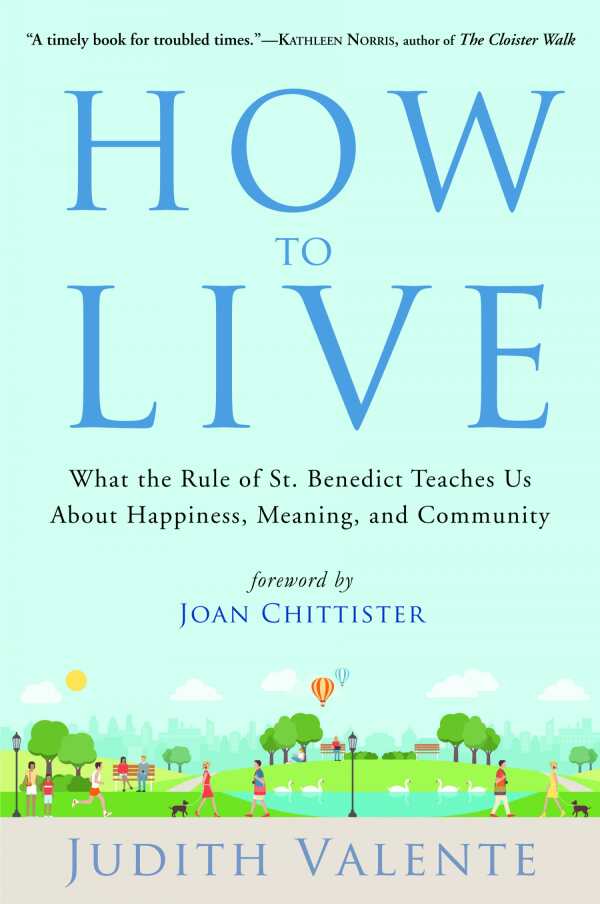How to Live
What the Rule of St. Benedict Teaches Us About Happiness, Meaning, and Community
In How to Live, Judith Valente lovingly roams the corridors of ecclesial history, coaxing ancient spiritual practices out of the monastery and into the everyday lives of twenty-first-century people.
In the sixth century, Benedict of Nursia composed his Rule, a guide for ensuring the optimal health and function of monastic societies. While there are certainly rigorous religious practices included, the document is effective at plainly describing all that is necessary to create a genuinely happy human society—including, but not limited to, forgiveness, humility, hospitality, finding meaning in work, and living simply.
St. Benedict’s time, like ours, was tumultuous. Valente seeks to extend his ancient ideas beyond cloistered walls. If these guidelines for living were more widely implemented, she posits, they could help temper our society’s rampant consumerism and unhealthy competition.
Valente is quick to note the sections of the Rule that are products of their time, particularly when it comes to corporal punishment. But though such things may be jarring to our more modern sensibilities, that does not mean the entirety of St. Benedict’s instruction should be ignored.
Even those with little interest in the religious aspects of the text may find some of its practices personally enriching. Sections appended to each chapter provide exercises for realizing each section of the Rule in a modern context, no Herculean feats of spirituality required.
Valente’s voice is a tender guide, conversant with historical Christianity and its texts. References to the manifestation of the Rule in her own life abound. She is a teacher who has experienced the fullness of a life lived under St. Benedict’s guidance, and she embodies the humility that any true pilgrim must embrace.
How to Live is a vital call to a higher order in the turbulence and division of the times.
Reviewed by
Meagan Logsdon
Disclosure: This article is not an endorsement, but a review. The publisher of this book provided free copies of the book to have their book reviewed by a professional reviewer. No fee was paid by the publisher for this review. Foreword Reviews only recommends books that we love. Foreword Magazine, Inc. is disclosing this in accordance with the Federal Trade Commission’s 16 CFR, Part 255.

